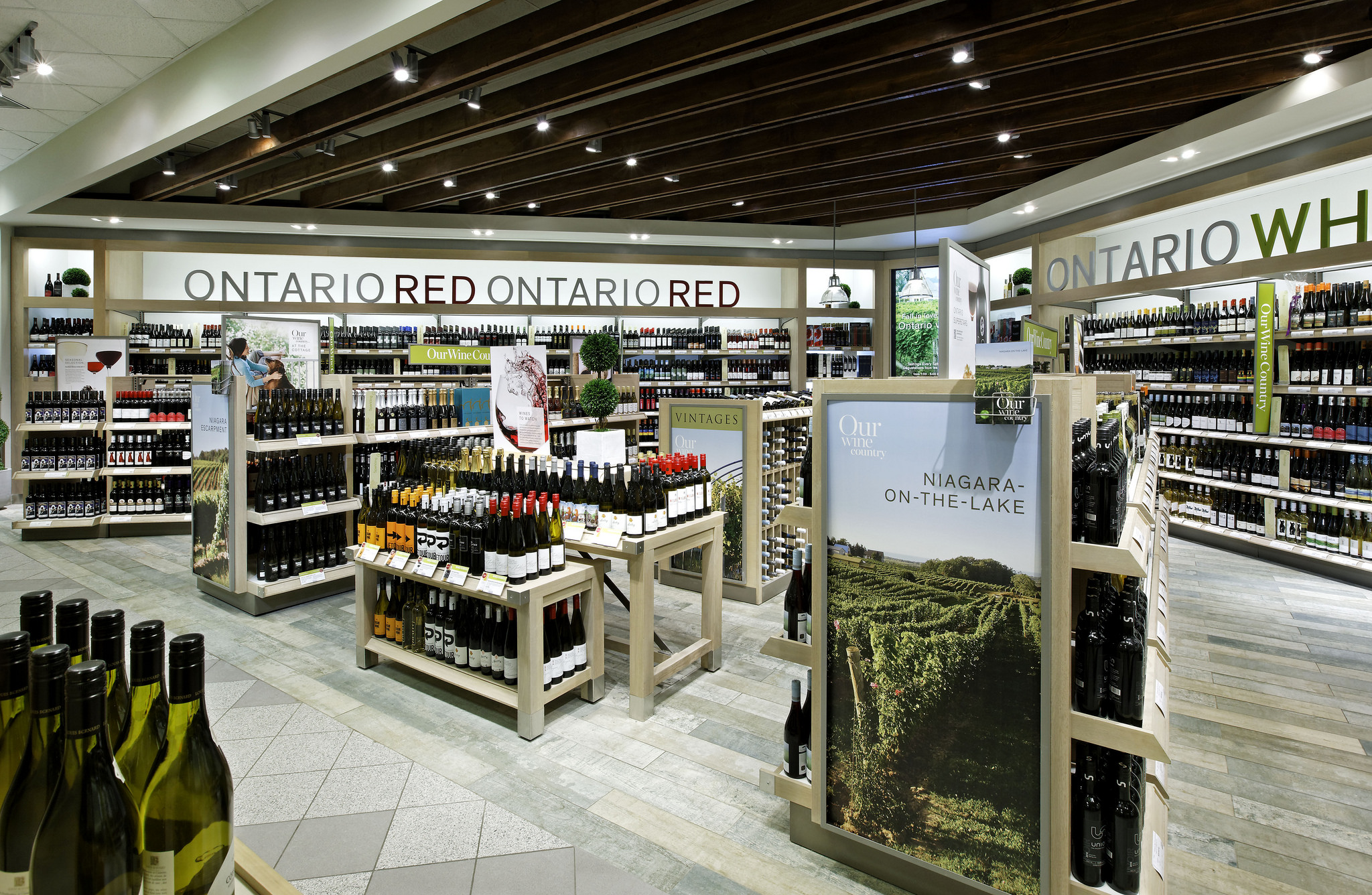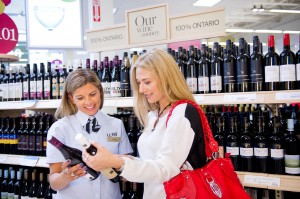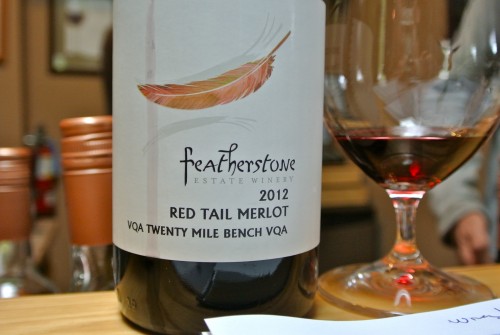 With 2014 now a distant shadow in our rear view mirrors, it’s time to jettison into the future. A brave new world awaits us. And what a world it will be for us here in Ontario in 2015. We are finally going to be treated like adults when it comes to buying booze.
With 2014 now a distant shadow in our rear view mirrors, it’s time to jettison into the future. A brave new world awaits us. And what a world it will be for us here in Ontario in 2015. We are finally going to be treated like adults when it comes to buying booze.
There it is, exactly what we’ve been waiting to hear. Private wine stores in Ontario are coming, maybe as quickly as this year.
And how do I know this? Because I’ve been told by people who know, that’s how. It’s being talked about in hushed tones out of fear of drawing attention to the privatization train, which has already left the station, according to those people who know such things.
 It’s almost anti-climatic to even be writing this. I have longed for this moment for decades. I have campaigned through newspaper columns, editorials, wine columns at newspapers, magazines and on this blog. I have debated vigorously with those who cannot see the benefits of a free and open system for selling and buying wine in Ontario. I have been scolded. I have sat across from angry (and big!) LCBO PR dudes (you know who you are) who have lectured me right in my own office. I have been told in no uncertain terms to back off of my views on privatization both by the LCBO and by bosses at various newspapers where I have worked.
It’s almost anti-climatic to even be writing this. I have longed for this moment for decades. I have campaigned through newspaper columns, editorials, wine columns at newspapers, magazines and on this blog. I have debated vigorously with those who cannot see the benefits of a free and open system for selling and buying wine in Ontario. I have been scolded. I have sat across from angry (and big!) LCBO PR dudes (you know who you are) who have lectured me right in my own office. I have been told in no uncertain terms to back off of my views on privatization both by the LCBO and by bosses at various newspapers where I have worked.
So, I want to be more excited.
But, rest assured, it’s a done deal, friends. You’ll have to take my word for it. I know that’s a lot to ask, but, trust me, it’s going to happen and the announcement will likely come this spring.
 I am told (again by those who know) that you need look no further than Ed Clark’s comments on modernizing the LCBO. Clark, the departing head of TD Bank, heads a task force for Premier Kathleen Wynne focusing on three big government-owned monopolies: OPG, Hydro One and the LCBO.
I am told (again by those who know) that you need look no further than Ed Clark’s comments on modernizing the LCBO. Clark, the departing head of TD Bank, heads a task force for Premier Kathleen Wynne focusing on three big government-owned monopolies: OPG, Hydro One and the LCBO.
While his comments have focused a lot on The Beer Store, it is those “private” wine stores (Peller, Constellation) in Ontario that have been able to sell wine under some archaic rule that pre-dates NAFTA that Clark sees an opportunity.
Let’s turn to the third and final monopoly in the system — the off-site winery stores — which you come across in your local grocery store or as a stand-alone store in your neighbourhood,” he says in his report.
The wine stores do offer Ontarians convenience. This private monopoly is comprised of six wine producers of which two, Constellation and Peller, are the largest with 92% of the stores. This system was built by the six companies over time as they chose to invest in distribution to enhance sales of their products.
They have been grandfathered within international trade agreements. Under these agreements and current legislation, no new wine stores can be added unless they carry all wines: Canadian and international.
Obviously for other Canadian producers it is frustrating to see your competition with exclusive access to a distributor that you cannot use.
Moreover there is a tax fairness issue. The stores are treated as if they are at the winery site, and have a low tax rate and can avoid the LCBO mark-up. In effect, a bottle of wine sold through one of the wine stores yields less to the government than a bottle of wine sold through the LCBO.
This anomaly seems even starker in the case of blended wines, which are sold as Canadian but are in reality foreign wines topped up with Canadian wines, often around only 25% of total content.
On the other hand, our bias is to create more competition rather than less. So wine stores — in some format — are a positive feature of the system. We also recognize that the producers of blended wines are important buyers of Ontario grapes. And it is important to recognize that the economics of a store system which offers only wines, indeed only wines of a single producer, works differently than one like the LCBO which carries a broad range of alcohol products. This system may not be able to carry the same tax/mark-up regime as the LCBO. We will engage the participants in a constructive dialogue to achieve our goals — a taxation system which is fair, an environment that allows domestic producers to have some outlets, consistent with international trade agreements, and a set of changes that continue to see strong demand for Canadian grapes.
One possibility, which would make the system fairer to the other Canadian wineries, is to build upon the existing wine store model where stores are in grocery stores, but in this case have a store license which would offer Canadian and international wines. We would like to explore a model where the licenses would only be available to small wineries, Canadian or international. This is one clear way we could add competition and remove a fairness issue. We will explore the economics of doing so, and the issue of how many licenses should be available.”— Excerpt fom Clark’s report
The day after Clark released his report, Premier Kathleen Wynne endorsed his proposals, saying her government will move forward with his findings.
And a month or so after that, in a speech to the Ontario Liberal provincial council in Windsor, according to the Toronto Sun, Wynne said this:
 “We asked Ed Clark to work with his team to bring forward recommendations not so that we could sit on them and spend three years thinking about them but so that we could begin to implement and begin to make the changes that we know are necessary in order to optimize those assets and have the resources to invest in transit and transportation infrastructure that we need,” Wynne said. “We have a very ambitious agenda. We want to get moving.”
“We asked Ed Clark to work with his team to bring forward recommendations not so that we could sit on them and spend three years thinking about them but so that we could begin to implement and begin to make the changes that we know are necessary in order to optimize those assets and have the resources to invest in transit and transportation infrastructure that we need,” Wynne said. “We have a very ambitious agenda. We want to get moving.”
In other words, what Clark wants is what Wynne will do.
Clark’s panel clearly says Wynne’s government should consider a limited number of private stores featuring local and international craft beers and ciders, and do the same with the wine industry and distillers to generate some limited competition for the LCBO.
“If you want to open a scotch store and have scotches from around the world, I don’t believe that’s going to bring down the LCBO monopoly,” said Clark.
 And this is the basis of the optimism from the Ontario wine industry, which is busy behind closed doors working with Clark and the Wynne government to see what the new landscape for Ontario wineries will look like.
And this is the basis of the optimism from the Ontario wine industry, which is busy behind closed doors working with Clark and the Wynne government to see what the new landscape for Ontario wineries will look like.
It is the prospect of having more access to Ontario wines that is most exciting for the Ontario Wine Council and its member wineries.
No one knows exactly how that will look, or how many private store licences will be allowed, but all agree that it is the thin edge of the wedge that is crucial for moving the industry forward.
For you and me as consumers, it is the first shred of hope we have had in our lifetime for a better system of purchasing wine in this province.
•••
Vintages is back with its twice-monthly wine releases Jan. 10 after a long, holiday break. There’s not a heck of a lot of Ontario wines being released, but here’s one I can highly recommend.
 Featherstone Red Tail Merlot 2012 ($20, 90 points) — The 2012 vintage has been very kind to Featherstone. This is another solid wine from the winery’s red portfolio. The nose shows inviting raspberry, cherry and plum aromas with light spice. It’s lush and smooth on the palate with medium weight showing flavours of raspberry, plums, licorice and spice with a smooth delivery through the long finish.
Featherstone Red Tail Merlot 2012 ($20, 90 points) — The 2012 vintage has been very kind to Featherstone. This is another solid wine from the winery’s red portfolio. The nose shows inviting raspberry, cherry and plum aromas with light spice. It’s lush and smooth on the palate with medium weight showing flavours of raspberry, plums, licorice and spice with a smooth delivery through the long finish.






I hope your sources are better than mine. There will be change and one source from the CD Howe said 50 is the number of VQA store licenses they want to return to the industry, but negotiating with the big wineries who hold them has been challenging. That was a year ago, and who knows what it will look like now. Private wine stores good, 270 VQA wines store sell only VQA wine is better. That is the direction I’m hoping for, his final report has been submitted before Christmas and now it is up to the Liberals to move on it.
Ed, I wrote that piece a year ago and followed it up with a mea culpa saying essentially that my source was right at the time my piece was written but Ed Clark backtracked on many of his own ideas and plans. A big part of it was craft beer interests coming together to present a logical process for allowing beer in grocery stores before wine. Now wine is trapped in a vast wasteland of confusion and threats of lawsuits over parts of the plan. It’s a mess and I have very little optimism that the next phase of the plan will please anyone.